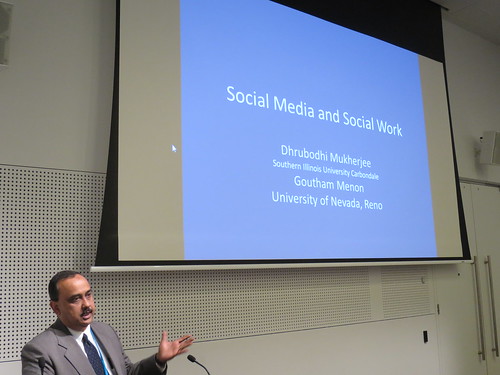Paper presented at #husITa14 in Melbourne, Australia in July 2014.
Presenters
Goutham Menon (University of Nevada, USA).
Abstract
As we’re moving towards a more technologically complex world where access to information through the Internet is increasingly available, a critical literacy of the social media becomes essential for social workers. Unlike other human service professions, social work has been slow to inculcate technology mediated environments into practice. However, changes in the demographics of clients and a fast assuming ubiquity of digital communications have prompted the need for social workers to gain a critical literacy of the social media. Social media literacy is not restricted to mere accessing of computers and gaining basic abilities to operate certain technological tools, rather it consists of a critical understanding of the social media logistics and the ability to modify one’s online behavior/involvement. Social media strategies are important for the optimum growth and sustainability of social work profession in near future.
This paper attempts to document the types of social media encounters that social work organizations have had in recent times, their social media policy if any (stated or unstated), and also the measures they might have adopted to address them. The study reports the results of an experimental survey to social service agencies about their social media literacy and encounters. The purpose of this study is to identify and categorize common encounters to inform about social media policies guidelines, both formal and/or informal, in social service agencies. A cross sectional survey, using a non-probability purposive sample is being conducted. The survey will include demographic, organizational networks and social media related descriptive question items. The unit of analysis will be social service organizations in the United States. The agency level responses will help us understand the policy challenges that social media poses to social work practice.
Powerpoint
[to follow]
Back to programme

